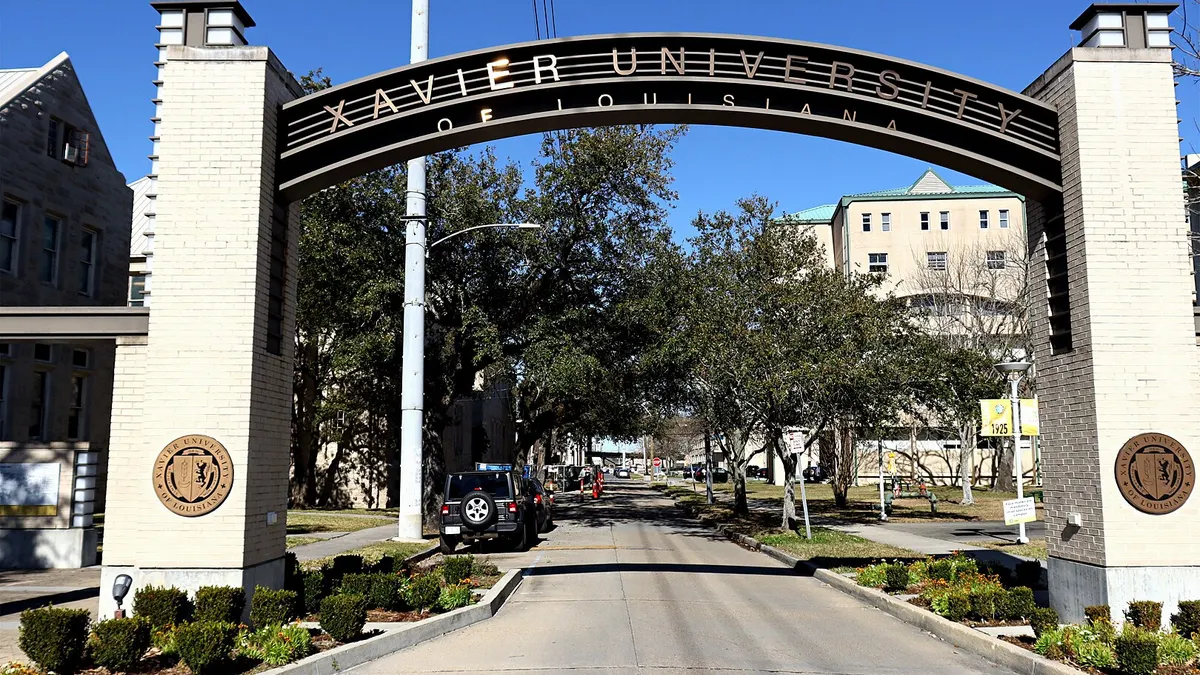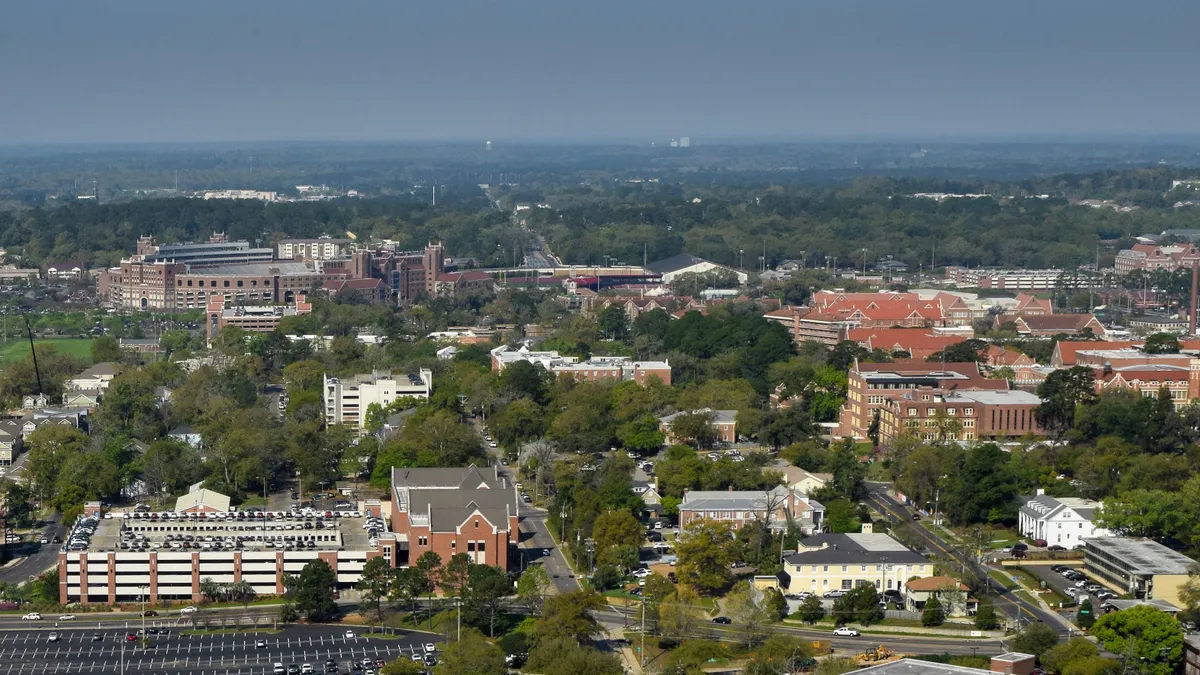Dive Brief:
- Lower birthrates following the Great Recession are expected to contribute to declining college enrollment, with the population of college age-students dropping by 15% from 2025 to 2029, according to The Hechninger Report, citing research from Nathan Grawe, an economist at Carleton College, in Minnesota.
- Regional four-year colleges will experience the biggest decline with an 11% decrease in their student bodies from 1.43 million in 2012 to 1.27 million in 2029. But elite colleges could see demand increase by 14% during that time.
- Grawe said college students will become "a hot commodity," making tuition hikes even harder to justify. With tighter budgets, more colleges may cut liberal arts programs in favor of popular professional degrees. The number of private college closures may also increase.
Dive Insight:
Higher education officials are continually seeking ways to compete for students as they face declining enrollment and tuition revenue. One increasingly popular approach is discounting tuition, whether through price-matching competitors' offerings or lowering rates for certain student groups.
In August, Oglethorpe University, in Atlanta, announced plans to offer incoming students that meet certain academic criteria the same tuition rate as they would receive at their home state's flagship public college.
Tuition discounts for new, full-time freshmen at private colleges hit a record high of 48.2% during the 2016-17 academic year and were expected to come in just under 50% for the 2017-18 academic year.
Public colleges are also exploring ways to make their tuition more competitive as state funding declines. The University of Illinois at Urbana-Champaign, for example, will offer free tuition and fees to in-state freshmen and transfer students whose family income is at or below the state median.
Online learning is becoming another popular approach among colleges to increase enrollment, raise tuition revenues and attract a broader sample of students. To help meet demand for its popular master of computer and information technology graduate degree program, The University of Pennsylvania will expand it online where it will be available at a lower price than the in-person version. Smaller private colleges, meanwhile, are turning to online degrees to help them stay open.




